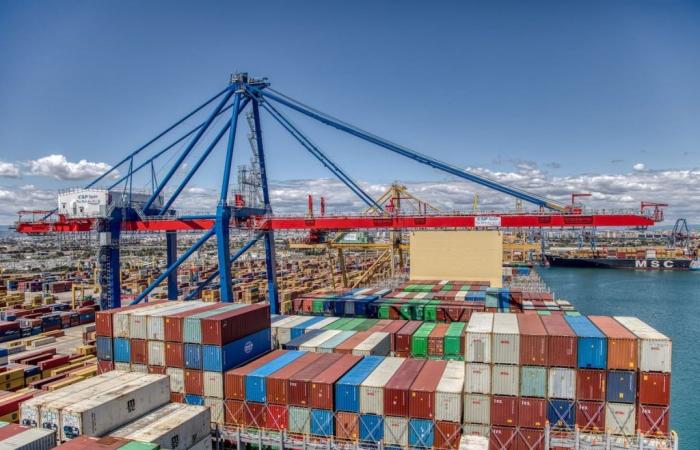The Spanish economy is doing well. GDP grew at 0.8% in the first quarter. And all organizations have increased—or are preparing to do so—their GDP forecast for this year, to around 2.5%. But among the immediate uncertainties, apart from those derived from its own structural weaknesses (productivity, resistant unemployment pool), those of neighbors and main partners stand out, whose vicissitudes can cast a shadow on the Spanish foreign sector.
Spain’s major trading partner is the European Union bloc, which in 2023 absorbed 62.7% of our exports. The four main individual partners are France, Germany, Italy and the United Kingdom (apart from Portugal, which preceded it after Brexit). They used to represent around 40% of Spanish trade relations (exports and imports) with the entire bloc of 28.
These four countries are going through a difficult situation and all of them must immediately make key decisions, as they face elections (France, this Sunday and on July 7; the United Kingdom, on July 4), severe budget debates (Germany must finish it on July 3) and other challenges or setbacks (Italy), which may be compounded by complicated cross-rebounds between them.
Its situation is more gloomy than the Spanish one. The Commission has just opened a procedure for “macroeconomic imbalances” in Germany, and for “excessive deficit” in France (imbalance of 5.5% in 2023) and Italy (7.4%), while Spain was exempt, after registering a 3.6%. And the United Kingdom showed 6%. The rate differential of ten-year bonds with Germany this Friday was 157 points against Italy (the usual “de facto couple” of Spain, which this time is very decoupled, for the better, with only 94 points); while the French differential rose to an unknown level, 80 points; and the British, up to 172!
Despite the turbulence that this may generate – and its repercussions on Spain in the second round – “in principle, I believe that there will not be a problem with the risk premium,” predicts Cristina Herrero, the always demanding president of the Independent Fiscal Authority (AIReF), in this column.
And remember that the eurozone now has a yet-to-be-released ECB bazooka, the Instrument for the Protection of Monetary Policy Transmission, which could buy up sovereign debt at will and without limit if it were threatened. It was established at the beginning of the sequence of interest rate hikes, two years ago, above all to protect weak Italy. But in the present scenario, France has more numbers, due to the fear of the markets that a triumphant far right would worsen public finances, entrench atavistic corporatism and reverse Emmanuel Macron’s praiseworthy effort to raise the retirement age, which in Spain was achieved by the Zapatero government.
This would immediately rebound on Italy, already weakened by the threat of a crazy amnesty law on illegal construction that will distort its Next Generation recovery plan, or the improvised budget regionalisation in favour of the Lega that could squander efforts to control spending. The United Kingdom faces the opposite problem: the modest increase in spending proposed by Labour (favorites in Thursday’s election), but an increase amid mediocre revenue collections, foreshadows a relaxation of its fiscal rules, especially on debt.
And the internal budget frictions in the German ruling coalition, between the austeritarianism with social cuts from the liberals and greater green and social democratic caution – tensions that have increased since the European elections – must be resolved precisely the day before. In a few days, a lot of intensity.
Follow all the information Economy and Business in Facebook and Xor in our weekly newsletter


